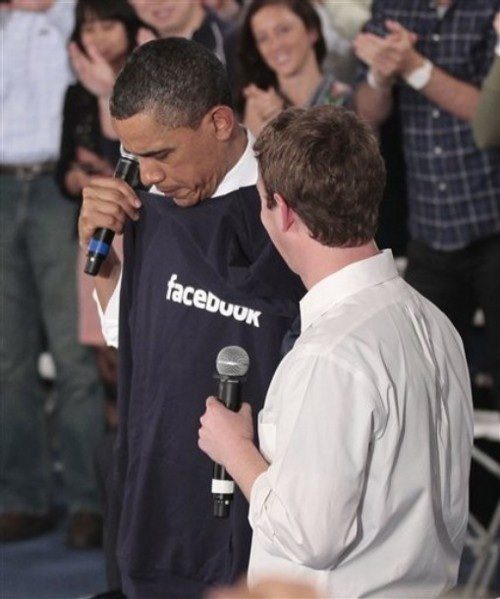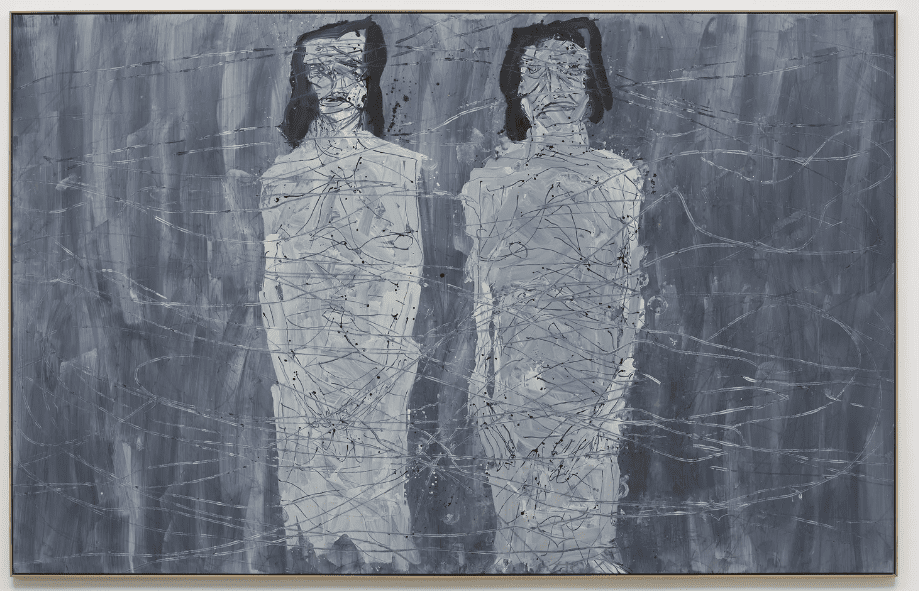Politics has rarely concerned itself with the intelligent.
The art of persuasion is neutered by the intelligent person's demands for data. Where will the money for schools, libraries, hospitals come from? Those pesky intellectuals always want to know. For the dolts, the poltroons and the thick-as-pigshits, it's enough to mug to the camera with 'Read my lips, No New Taxes'. One source of optimism for the persuaders though – if you can't convince the clever ones, it doesn't really matter. They're vastly outnumbered.
At least no-one really needs to be intelligent any more. With information so easily gathered in the internet era, retaining it in the actual neural pathways of the brain seems like an outmoded affectation. Until Jimmy Wales switched Wikipedia off to protest against Sopa.
no-one really needs to be intelligent any more
Poor Jimmy, whose pitiful mugshot has graced the banner advertisements running across the top of Wikipedia's webpages in recent years, pleading for donations to enable the upkeep of the world's largest collection of knowledge contributed and edited by unpaid volunteers. A community, he told us, gathering and collating the planet's collective brainstuff for no reason other than the altruistic urge to share freely the sum total of all human knowledge. It may have been biased, inaccurate, or the regurgitated screed of company press releases quoted verbatim, but it was knowledge. Jimmy's dream.
And knowledge is, after all, power. Not power to be hoarded by the elite, locked behind the impenetrable walls of the Library of Congress or the gated colleges of Oxbridge – no, a levelling of all impediments to the free movement of data, a true democracy of the known, a self-maintaining hive mind free of all intrusion and censure. Or was, until he decided to shut it down for a day because he had a political point he wanted to make. Classy.
of no relevance whatsover to Sopa, which is not a law at all
Sopa was also the shitstorm du jour that prompted the world's youngest billionaire, Mark Zuckerberg, to make a rare political statement against the proposed bill. 'We can’t let poorly thought out laws get in the way of the internet’s development' he stated on his FaceBook profile, which is interesting. And probably right. But of no relevance whatsover to Sopa, which is not a law at all, but a proposed bill concerning the methods of enforcing laws which already exist and have done since before there was even a US constitution. Or indeed, before there was even a US. This is what happens when Wikipedia isn't working….
Nevertheless, if Zuck says Stop Sopa, then Stop Sopa we must. We will not have our democracy derailed by sleazy individuals and rich corporations using their position to influence Washington, gaining access to policymakers by the dubious virtue of having amply stuffed offshore bank accounts.

No, said the surprisingly politically astute and legally sophisticated hordes (for so they must be – after all, no-one would vociferously oppose or comment upon a Bill being put to a Congressional vote without having actually read it, would they?). No, they said. If we must have a figure to follow, let it be Zuckerberg.
It seemed for a moment though, as if the rallied opinion of the masses was actually having an effect. Barack Obama's declaration that the Sopa bill would not be gaining his approval early last week prompted a slew of Congressmen to follow suit. Sure, they (perhaps) thought to themselves, the waves of hostility to the Sopa bill may be less to do with contravention of the Bill of Rights than with the inalienable, self-evident right of the American people to fill their hard-drives with free music and video, but all the same, there might be votes in it come election time.
the inalienable, self-evident right of the American people to fill their hard-drives with free music and video
So the backslapping ex-jocks and anchormen who fill the ranks of Congress had a change of heart. Maybe curtailing the freewheeling, unregulated Wild West aspects of the internet would be a bad thing, maybe the whole idea was misjudged. Maybe Washington should just keep out of internet regulation altogether. And then Anonymous slapped a DdoS onto the MPAA, the RIAA and The Department of Justice.
Honestly, if Anonymous didn't already exist, the FBI would surely have had to invent them. If ever a single intervention could have galvanized US policymakers into believing in the absolute necessity of surveillance and control of the online realm, at a more critical time, it could only have happened in an action-thriller screenplay. You couldn't make it up. Well, maybe you could. You'd have to have a pretty creative imagination though, and a pretty good motivation, not to mention a highly-developed sense of the theatrical. Oh….
The evil creative industries pulled a similar trick on the UK populace just before the last election
Britain can be deservedly smug about all of this. The evil creative industries pulled a similar trick on the UK populace just before the last election. The Digital Economy Act's unpopularity was a critical factor in the results of that Westminster shake-up. Outraged by the act's heavy handedness (convicted repeat offenders were faced with the daunting task of changing their internet service provider), the issue took on a political weight beyond all expectation. 'How dare you enable a bill to enforce copyright laws which have served since Shakespeare's time? Let the music and film industries 'adapt to free'. Let them Innovate!', the electorate wailed, and promptly voted out most of the MPs who supported the bill.
That the resultant elected government turned out to be a bunch of callous, morally devoid shits with no regard for the welfare or rights of anyone other than themselves, somehow surprised those who voted for them. Services being cut? Innovate!
And then there was Murdoch. Nobody wants to be seen to agree with Rupert Murdoch. His comment that the Wikipedia blackout was 'foolish' was the equivalent of Jeremy Clarkson complimenting your writing style – it activated a nervous recoil that was as instinctive as it was unexamined. So he thinks Silicon Valley has Obama in its pocket? Silly Rupes. The recoil was so overwhelming that we were all too busy sniggering at the fallen emperor's pathetic need for attention to wonder whether Murdoch might be uniquely qualified to comment. Manipulating the media to exert undue influence on political matters? There's probably nobody on the planet better able to recognise it.
May we live in interesting times.

An observer first and foremost, Sean Keenan takes what he sees and forges words from the pictures. Media, critique, exuberant analysis and occasional remorse.





















